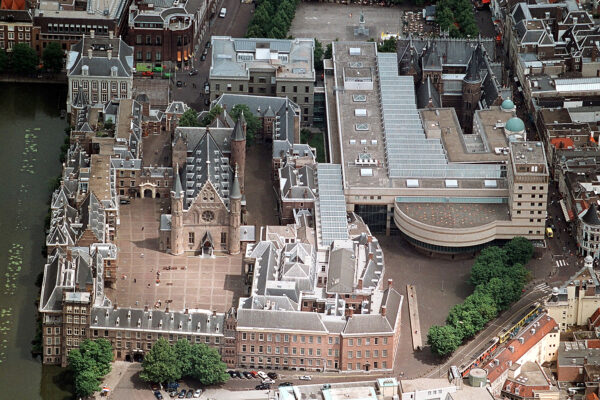
Four parties are vying to become the single largest in the Netherlands’ election on Wednesday.
The latest average of polls puts Prime Minister Mark Rutte’s liberals in first place with 16 to 18 percent support.
But the Christian Democrats, liberal Democrats and nationalist Freedom Party are not far behind. Each would get between 12 and 14 percent.
If the polls are off by a few points, one of those three parties could come out on top.
Shift on the right
Support for the pro-EU liberal Democrats has risen only slightly since the start of the campaign. Support for Rutte’s mildly Euroskeptic liberal party is also unchanged.
The movement has been on the right: Freedom Party voters appear to have defected to the Christian Democrats.
The former is down from a high of 21 percent in December to an average of 14 percent the day before the election.
The Christian Democrats have climbed up from 10 to 13 percent support in the same period.
It seems the reactionary course of Christian Democrat leader Sybrand van Haersma Buma is bearing fruit.
Under his leadership, the party has come out against dual nationality and for a mandatory national service to enhance the assimilation of non-natives.
Rutte at risk
The outcome may not matter much in terms of which parties come to power.
The four biggest parties are projected to each win around twenty seats in parliament. 76 are needed for a majority.
The Christian Democrats and liberal Democrats would be needed for virtually every possible coalition, given that all mainstream parties have ruled out a pact with the Freedom Party of Geert Wilders.
The result will matter in terms of who becomes prime minister.
If the Christian Democrats or liberal Democrats place first, their leaders — not Rutte — would get a mandate to form a government.
That, in turn, could lead to the right being forced out of power.
The Christian Democrats and liberal Democrats have more in common with Rutte’s party than they do with the Greens, Labor and Socialists, but those five parties could have a (narrow) majority. It would give the Netherlands its most left-wing government in forty years.
Uncertainty
Pollsters are least certain about the Freedom Party’s prospects, giving Wilders anywhere between 10 and 16 percent support.
In every national election so far, his Freedom Party has underperformed its poll ratings.
By contrast, the two largest parties in 2012 — Rutte’s liberals and Labor — did far better than the polls had predicted.
So much better, in fact, that they had no choice but to collaborate after the election, which is why both parties are now down in the polls: right- and left-wing voters are disappointed that their leaders made a deal with the other side.
